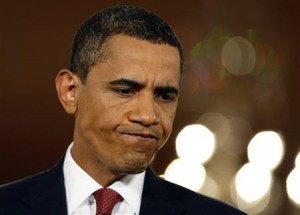With grim resolve President Barack Obama spoke to the nation Tuesday night, making the case for a U.S. military strike against the Syrian government.
He was convincing. The idea that the failure of the world to act to as “a dictator brazenly violates international law” by using poison gas against his own people would only encourage the spread of weapons of mass destruction is not that far removed from the arguments made by George W. Bush for taking action against Iraq. America is, however, war weary after nearly a decade of military intervention.
“Our ideals and principles, as well as our national security, are at stake in Syria – along with our leadership of a world where we seek to ensure that the worst weapons will never be used,” the president said in a brief address from the East Room of the White House.
Unfortunately what Obama had to say was too little, too late. The United States’ vital leadership has been eclipsed by the Russians, who put a potential deal on the table under which the Syrian government would surrender its chemical weapons arsenal to international control and the United States would forego the option of a military strike.
Consequently, the president has asked the congressional leadership to postpone the vote authorizing him to order a limited military strike against the government in Damascus in order to give the peace process time to work.
Assuming events have unfolded as described, the president has shown America to be a weak and unreliable ally of freedom. The option of a negotiated solution should have been pursued before Congress was asked to authorize the use of force, not as part of the deal-making process. The men and women and machines of the U.S. military are not tools to be used in a “carrot and stick” approach to diplomacy. The use of force is always the last resort, not a part of bidding and bluffing in an international game of poker.
The threat of U.S. military action did not bring Assad to the table. It also did not bring the Russians into the debate, as anyone who can count votes can see that the president’s request was going to be defeated in the U.S. House of Representatives and, possibly, the Democratically-controlled United States Senate as well.
Obama’s national security team, especially Secretary of State John F. Kerry and Secretary of Defense Chuck Hagel seemed woefully unprepared to face Congress when arguing in favor of the resolution. They could not explain how and, more importantly, they could not explain why.
While everyone should be grateful that an act of war will not be launched anytime in the near future, we should also be gravely concerned that there is a president in office who appears to view his ability to order a military strike, with or without the consent of Congress, as just another option to keep in his back pocket.
. . . . . . . . . . . . . . .
Peter Roff is a senior fellow at Frontiers for Freedom, a Washington, D.C.-based public policy organization advocating on behalf of limited government. Follow him on Twitter at @PeterRoff.
